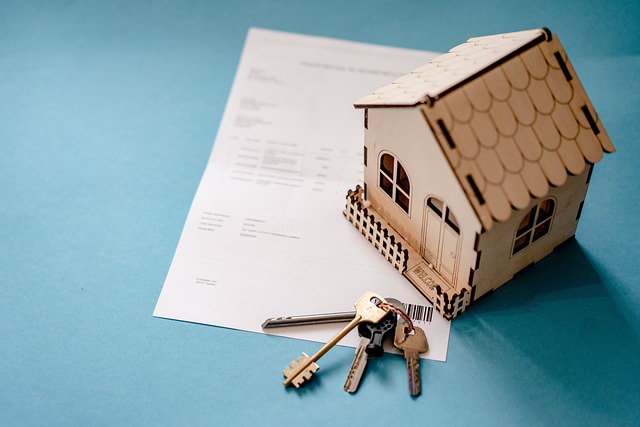Discovering Affordable and Abandoned Property Auctions in the United Kingdom: What to Know for 2025
Did you know that auction platforms offer a practical way to find abandoned and low-cost properties in the United Kingdom? This article reveals how auctions work, typical costs involved, and practical tips for navigating property investments in 2025.

Finding Abandoned and Affordable Houses for Sale in the UK
Abandoned houses and derelict properties are sometimes listed on auction platforms throughout the UK. Auctioneers such as Town & Country Property Auctions, McHugh & Co, and Auction House London host online and in-person auctions featuring a variety of homes and land.
- Availability: Properties described as needing improvement or derelict are listed across the UK, including urban areas like Leicester (postcode LE4) and coastal towns. Interested parties should review current auction catalogues for up-to-date listings.
- Properties Priced Under £40,000: Occasionally, properties within this price range appear at auction, often requiring significant repairs or representing smaller land parcels. Monitoring auction catalogues is advised to identify these opportunities.
- Extremely Low-Priced Properties: Listings of houses priced as low as £100 are very uncommon and typically involve local council schemes or special auction cases rather than widespread national auction listings.
Prospective buyers can consult property portals such as Rightmove, Zoopla, and Onthemarket alongside auctioneers’ websites to find relevant properties.
The Process of Purchasing Properties Through Auctions
Buying properties at auction involves several steps and considerations:
- Registration: Buyers generally need to register with the auction house, sometimes online.
- Research: Detailed review of auction catalogues and legal documents is important to understand property condition and terms.
- Pre-Auction Offers: Some auction houses permit offers before auction day, potentially allowing early purchase agreements.
- Bidding: Auctions may be held live or online via livestream, offering broad access to buyers.
- Completion: Winning bidders typically exchange contracts immediately, with completion usually scheduled within 20 to 28 working days.
Auction houses often provide guidance materials to assist buyers in understanding the process.
Understanding Costs and Fees When Buying at Auction
Potential buyers should be aware of various financial aspects involved:
- Deposit: A deposit payment, often around 10% of the purchase price, is usually required immediately after winning a bid.
- Buyer’s Fees: For example, McHugh & Co charges a buyer’s fee of £1,200 including VAT for properties sold over £10,000, and £300 including VAT for those under £10,000.
- Additional Fees: Other fees may apply as specified in the auction’s terms and conditions, and buyers should review these carefully.
- Renovation Costs: Properties described as abandoned or derelict commonly need investment for repairs or refurbishment; budgeting for this is essential.
Advantages of Purchasing Properties via Auction
Auctions can offer several practical benefits:
- Speed: The process from bidding to completion is typically quicker than traditional property purchases.
- Certainty: Auctions provide a legally binding contract on the fall of the hammer, reducing prolonged negotiations.
- Negotiation Options: Some auctions allow pre-auction offers, providing flexibility for buyers and sellers.
Tips for Considering Property Investments in 2025
- Regularly Review Auction Platforms: Keeping up to date with national and regional auctions increases awareness of opportunities.
- Consult Local Experts: Engaging agents or professionals familiar with specific areas or derelict properties can offer valuable insights.
- Explore Council Initiatives: Local council programs aimed at bringing empty properties back into use might present unique options.
- Budget for All Costs: Include fees, legal expenses, deposits, and renovation or repair costs in financial planning.
- Arrange Property Assessments: Where possible, viewing properties or commissioning surveys can provide clearer understanding of condition.
Selling Abandoned and Derelict Properties at Auction
For property owners looking to sell quickly, auctions offer a streamlined option with benefits such as:
- Control Over Pricing: Vendors can set confidential reserve prices to prevent sales below a desired amount.
- Exposure: Properties gain nationwide visibility through auction promotional channels.
- Efficient Sales Process: Transactions typically complete faster than traditional estate agency sales.
This approach may suit landlords, heirs, or sellers facing time or financial constraints.
Conclusion
In 2025, auctions continue to be a useful channel for discovering and considering abandoned or affordable properties in the United Kingdom. While options priced under £40,000 exist, extremely low-priced properties such as those around £100 are rare and generally require specific local involvement. Prospective buyers should seek thorough information on the auction process, fees, and renovation considerations. Keeping connected with auction platforms, experts, and local council schemes will support informed decision-making. Whether interested in areas like Leicester LE4, Southport, or other locations, the UK auction market offers informational resources for those exploring these property options.
Sources
- Auction House London – Current Auction Listings
- McHugh & Co – Past Auction Results and Buyer Fees
- Town & Country Property Auctions – Selling and Buying Guide
Disclaimer: All content, including text, graphics, images and information, contained on or available through this web site is for general information purposes only. The information and materials contained in these pages and the terms, conditions and descriptions that appear, are subject to change without notice.




